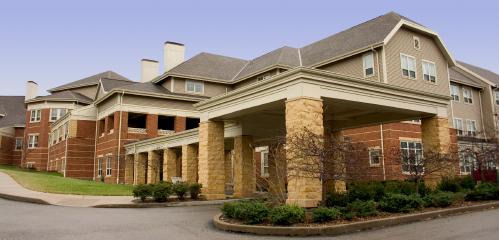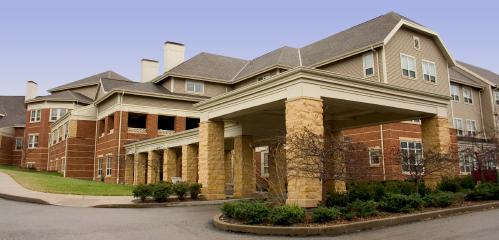Care Home Insurance: Essential Protection for Residential Care Facilities
Operating a care home involves managing complex risks from vulnerable residents and specialized care requirements to regulatory compliance and staff safety. Specialized care home insurance provides comprehensive protection for the unique challenges facing residential care facilities.
Understanding Care Home Risks
Care homes face distinctive risks that require specialized insurance protection. From resident safety and medical emergencies to staff injuries and regulatory compliance, residential care facilities operate in a highly regulated environment where comprehensive coverage is essential.
The combination of vulnerable residents, complex care needs, medical equipment, and strict regulatory requirements creates multiple liability exposures that can result in significant financial losses without proper insurance protection.
Essential Care Home Insurance Coverages
Public Liability Insurance
Critical protection for resident and visitor incidents:
- Resident falls and mobility-related injuries
- Medication errors and adverse drug reactions
- Scalding from hot water or food
- Pressure sores and neglect allegations
- Visitor injuries on premises
- Food poisoning from catering services
- Infections and cross-contamination incidents
Professional Indemnity Insurance
Protection for care-related professional negligence:
- Inadequate care planning and assessment
- Failure to follow medical protocols
- Breach of duty of care to residents
- Discrimination in care provision
- Confidentiality breaches and data protection
- Failure to safeguard vulnerable adults
- Inadequate staff supervision and training
Property Insurance
Comprehensive coverage for care home assets:
- Building structure and residential accommodation
- Medical equipment and mobility aids
- Furniture, fixtures, and resident belongings
- Kitchen equipment and catering facilities
- Laundry equipment and cleaning systems
- IT systems and care management software
- Garden areas and outdoor facilities
Business Interruption Insurance
Critical coverage for operational disruptions:
- Fire damage requiring resident relocation
- Flooding affecting care facilities
- Utility failures disrupting essential services
- Equipment breakdown affecting care delivery
- Regulatory enforcement and license suspension
- Outbreak control measures and quarantine
Specialized Care Home Protections
Employers Liability Insurance
Mandatory protection for staff-related claims:
- Manual handling injuries from lifting residents
- Needle stick injuries and blood-borne infections
- Stress-related conditions from demanding work
- Violence and aggression from residents
- Slip and fall accidents in care areas
- Chemical exposure from cleaning products
- Repetitive strain injuries from care tasks
Cyber Liability Insurance
Protection for digital systems and resident data:
- Resident medical records and personal data breaches
- Care management system hacking
- GDPR violations and data protection fines
- Ransomware attacks on care systems
- Payment system fraud and financial theft
- Social media reputation damage
Equipment Breakdown Insurance
Specialized coverage for essential care equipment:
- Lift failures affecting resident mobility
- Kitchen equipment breakdowns disrupting meals
- Heating system failures in resident areas
- Laundry equipment breakdowns affecting hygiene
- Medical equipment failures during care
- Fire safety system malfunctions
Abuse and Molestation Coverage
Specialized protection for vulnerable adult abuse claims:
- Physical abuse by staff or other residents
- Sexual abuse and inappropriate conduct
- Emotional abuse and psychological harm
- Financial abuse and theft from residents
- Neglect and failure to provide adequate care
- Investigation costs and legal defense
Common Care Home Insurance Claims
The £450,000 Resident Fall Claim
Incident: Elderly resident with dementia fell in bathroom, suffering hip fracture due to inadequate supervision and safety measures.
Costs: Medical treatment £180K, compensation £220K, legal costs £35K, care plan review £15K
Duration: 18-month legal process and ongoing care costs
The £320,000 Medication Error
Incident: Wrong medication administered to diabetic resident, causing severe hypoglycemic episode and permanent brain damage.
Costs: Medical treatment £150K, compensation £140K, legal costs £20K, system improvements £10K
Prevention: Enhanced medication management and staff training
The £280,000 Kitchen Fire
Incident: Kitchen fire caused by faulty equipment spread to dining area, requiring resident evacuation and temporary accommodation.
Costs: Property damage £180K, temporary accommodation £60K, business interruption £25K, emergency response £15K
Duration: 8-week closure for repairs and safety upgrades
The £150,000 Abuse Allegation
Incident: Staff member accused of financial abuse, stealing from multiple residents over 6-month period.
Costs: Investigation costs £45K, legal defense £35K, compensation £50K, system improvements £20K
Outcome: Enhanced background checks and financial monitoring
Risk Management Best Practices
Resident Safety Management
- Comprehensive risk assessments for each resident
- Regular review of care plans and needs
- Fall prevention programs and environmental modifications
- Medication management systems and double-checking
- Infection control protocols and hygiene standards
- Emergency response procedures and staff training
- Regular safety audits and incident reporting
Staff Training and Management
- Comprehensive induction and ongoing training programs
- Manual handling training and equipment provision
- Safeguarding training for vulnerable adults
- DBS checks and background verification
- Supervision and performance monitoring
- Stress management and wellbeing support
- Clear policies and procedures documentation
Quality Assurance
- Regular internal audits and quality reviews
- Resident and family feedback systems
- Complaint handling and resolution procedures
- Continuous improvement programs
- External quality assessments and inspections
- Best practice sharing and benchmarking
Health and Safety Protocols
- Fire safety systems and evacuation procedures
- Food safety and kitchen hygiene standards
- Legionella prevention and water safety
- Chemical storage and handling procedures
- Personal protective equipment provision
- Accident reporting and investigation
Regulatory Compliance
Care Quality Commission (CQC) Requirements
- Registration and ongoing compliance monitoring
- Regular inspections and quality ratings
- Fundamental standards of care and safety
- Notification requirements for incidents
- Staff fitness and training requirements
- Record keeping and documentation standards
Health and Safety Legislation
- Health and Safety at Work Act compliance
- Manual Handling Operations Regulations
- Control of Substances Hazardous to Health (COSHH)
- Personal Protective Equipment Regulations
- Fire safety regulations and risk assessments
- Food safety and hygiene regulations
Data Protection and Privacy
- GDPR compliance for resident data
- Confidentiality and information sharing protocols
- Consent procedures for care and treatment
- Data security and breach notification
- Mental capacity assessments and best interests
- Deprivation of Liberty Safeguards (DoLS)
Modern Care Home Challenges
Aging Population and Complex Needs
Managing increasing care complexity:
- Dementia care and behavioral challenges
- Multiple chronic conditions and comorbidities
- Palliative and end-of-life care
- Mental health and psychological support
- Medication management for complex regimens
- Family expectations and communication
Staffing Challenges
- Recruitment and retention difficulties
- Skills shortages in specialized care
- Training and development costs
- Shift patterns and work-life balance
- Competitive employment market
- Immigration and workforce planning
Technology Integration
- Electronic care records and documentation
- Telehealth and remote monitoring
- Assistive technology for residents
- Staff communication and coordination systems
- Cyber security and data protection
- Digital inclusion for residents and families
Financial Sustainability
- Local authority funding pressures
- Rising operational costs and overheads
- Regulatory compliance costs
- Capital investment requirements
- Fee structure and affordability
- Business model sustainability
Choosing the Right Coverage
Assessment Factors
Key considerations for determining insurance needs:
- Number of beds and resident capacity
- Types of care provided (residential, nursing, dementia)
- Building age and condition
- Staff numbers and skill levels
- CQC rating and inspection history
- Claims history and risk profile
Working with Specialists
Benefits of care home insurance expertise:
- Understanding of social care specific risks
- Knowledge of healthcare regulations
- Access to specialist insurers and markets
- Claims handling experience in care sector
- Risk management guidance for care homes
- Competitive pricing for the care sector
Protecting Your Care Home's Mission
Care home insurance provides essential protection for residential care facilities serving vulnerable adults in our communities. From resident safety to regulatory compliance, comprehensive coverage ensures your care home can continue providing quality care while protecting against potentially devastating losses.
The specialized nature of residential care requires expert insurance solutions that understand the unique challenges of caring for vulnerable adults in a highly regulated environment.
For comprehensive care home insurance solutions tailored to your residential care facility, contact Insure24 at 0330 127 2333. Our team understands the care sector and can help protect your facility with specialized, cost-effective coverage.


 0330 127 2333
0330 127 2333





























